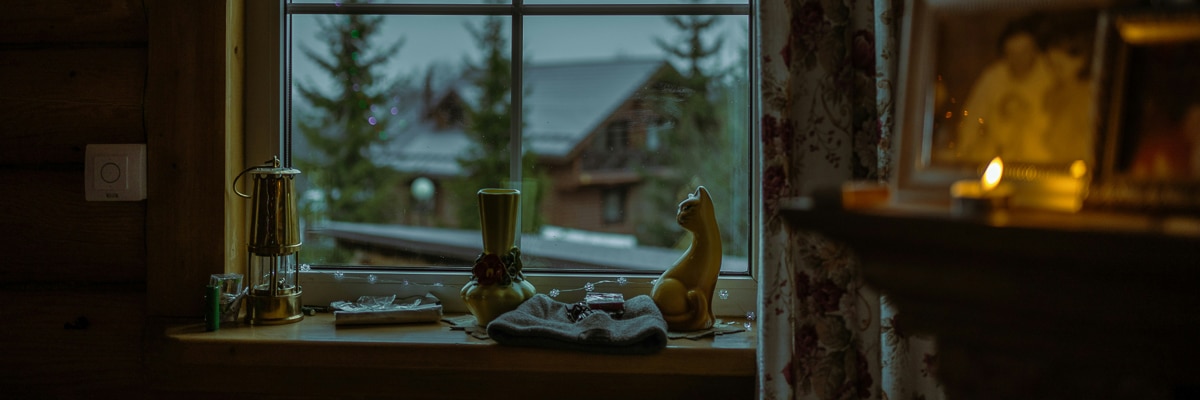
Felicia Murrell acknowledges that our first homes are not always safe:
In the 1978 movie The Wiz, the iconic Diana Ross sings, “When I think of home, I think of a place where there’s love overflowing.” [1]
What rises in your body when you think of home? Is home synonymous with love and affection? Is home a place you long to return to?
For some, home is terror, a place to flee with no desire to return or revisit. This is important to name and acknowledge because too many are aimlessly wandering, feeling insignificant—unseen, unknown.
When home is not a place of comfort, and there is no sense of knowing or nurture, it leaves the body in flight-or-fight mode. We see this in Dorothy’s companions, the scarecrow and the cowardly lion. One runs to isolation, invisibility, and separation, choosing to hide. The other blusters to cover a lack of courage … with a body that remains on full alert, suspicious and defensive. Whether self-protecting or hiding, one thing is true: Neither posture offers the soul any type of rest. Neither is home.
Often, when we think of home, we think only of an external place, out there, a fixed place—the place where we live and grow, create fond memories, establish familial bonds; the place we leave when we come of age and where we return when things are hard.
The evolution of Dorothy’s journey on the yellow brick road expands home beyond the narrow confines of a fixed place to a vast inward sea. “I’ve learned,” she says, “that we must look inside our hearts to find a world full of love … like home.” [2]
For Murrell, home offers unconditional love.
Love is home.
Home is both an external dwelling and an internal abode. Home is the place where we belong, our place of acceptance and welcome. There, in this shame and judgment-free embryonic cocoon of love, we practice unconditional acceptance; we learn to relate to ourselves and the world around us.
And home is a soft place for the body to land, a safe place for the soul to fully disrobe. Home is the place where our failures don’t kill, our sins can’t crush, and even when we are at our worst, we’re safe. Home is a place where we are free to take our deepest, fullest, least encumbered breath.
At home, there’s no need to guess whether we’re in or out, welcomed or not. Home always prepares a place with us in mind.
How are you preparing a home of unconditional acceptance for yourself? How do you welcome your body, make room for your mind? In what ways are you engaging your soul with intentionality? How are you reclaiming the safety of home for yourself?
“Home,” says Glinda the Good, “is a place we all must find, child. It’s not just a place where you eat or sleep. Home is knowing. Knowing your mind, knowing your heart, knowing your courage. If we know ourselves, we’re always home, anywhere.” [3]
References:
[1] Charlie Smalls, “Home,” in The Wiz, book by William F. Brown, music and lyrics by Charlie Smalls, rev. ed. (New York: Samuel French, 1979), 89.
[2] Smalls, “Home,” The Wiz, 90–91.
[3] Joel Schumacher, The Wiz: Screenplay, adapted from The Wonderful Wizard of Oz, by L. Frank Baum (New York: Studio Duplicating Service, 1977).
Felicia Murrell, And: The Restorative Power of Love in an Either/Or World (New Kensington, PA: Whitaker House, 2024), 114–115.
Image credit and inspiration: Esther Avdokhina, Untitled (detail), Russia, 2020, photo, used with permission. Click here to enlarge image. Each of us has the capacity to create home within and for ourselves.
Story from Our Community:
I was inspired by the reflection on the statue of St. Francis gazing down at the earth from the meditation on April 14. It reminded me of a profound experience I had years ago. One day while riding the subway home, I suddenly became fully present. I was standing by one of the doors and looked down the length of the car. I saw everyone clearly. They were so beautiful! There was so much love emanating from each of them. I looked across the aisle to the door opposite me and I saw the dirt that had accumulated there. In that moment, I understood that the dirt contained the universe. We were all in that dirt. I understood how everything is one thing and how that one thing is Love. —Ed G.




